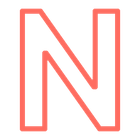
Diaspora
Diaspora is a user-owned, nonprofit, and decentralized social network based on the free Diaspora software. It aims to provide a privacy-focused alternative to traditional social media platforms, empowering users through distributed infrastructure and a focus on community control.
About Diaspora
Diaspora stands apart from mainstream social networks by prioritizing user ownership and data privacy. Unlike centralized platforms, Diaspora is built upon a network of independent servers (pods) operated by individuals and communities. This decentralized architecture ensures that no single entity controls the network or user data.
Key features include:
- Decentralized and Distributed: Your online identity and data are not tied to one company. They are distributed across the network of pods.
- Privacy-Focused: Diaspora provides granular control over who sees your posts and information, with features like Aspect sharing and content warnings. Your data remains on the pod you choose.
- Federated with the Fediverse: Diaspora seamlessly integrates with other social networks that support the ActivityPub protocol, allowing you to connect with a wider community beyond just Diaspora users.
- Open Source and Nonprofit: The software is free and open source, developed by a community of volunteers. The Diaspora Foundation is a nonprofit organization dedicated to maintaining and improving the network.
Diaspora offers a familiar social networking experience with features like:
- Activity feeds with rich content support
- Private messaging for direct communication
- Hashtags for discovering content and connecting with others
- Threaded conversations for engaging discussions
The platform is designed to be resilient against censorship due to its distributed nature. If one pod goes offline, the rest of the network remains operational. This focus on user empowerment and data sovereignty makes Diaspora a compelling alternative for those seeking a more ethical and privacy-respecting social media experience.
Pros & Cons
Pros
- Strong emphasis on user privacy and data control.
- Decentralized architecture enhances censorship resistance.
- Open source and driven by a nonprofit foundation.
- Interoperable with other Fediverse platforms.
- Ad-free experience.
Cons
- Smaller user base compared to major social networks.
- User experience can vary depending on the specific pod.
- Discoverability can be less seamless across pods.
- Self-hosting requires technical knowledge.
What Makes Diaspora Stand Out
User-Owned and Operated
The network is not controlled by a single corporation, giving users more control and ownership of their data.
Decentralized Architecture
Offers resilience against censorship and centralized control compared to traditional social media.
Privacy by Design
Built with privacy in mind, offering robust control over data visibility.
Nonprofit Foundation
Supported by a nonprofit organization focused on the network's development and sustainability, not profit.
Part of the Fediverse
Connects with a wider network of federated social networks, expanding the potential reach and interaction.
Features & Capabilities
13 featuresExpert Review
Diaspora: A Decentralized Alternative to Mainstream Social Media
Diaspora presents itself as a compelling alternative to the dominant centralized social media platforms. Its foundational principle of decentralization, where the network is distributed across independent servers or 'pods,' directly addresses concerns about data ownership, privacy, and censorship prevalent in today's digital landscape. This architecture fundamentally shifts power away from a single corporate entity towards the users and communities who operate the pods.
One of the most significant aspects of Diaspora is its unwavering focus on privacy. Features like 'Aspects' provide users with granular control over who sees each individual post. This level of control is a stark contrast to the often opaque privacy settings found on commercial platforms. The fact that data is stored on the chosen pod, rather than on servers owned by a large corporation, is a major draw for privacy-conscious individuals.
The integration with the Fediverse through the ActivityPub protocol is a strategic move that enhances Diaspora's value proposition. It allows Diaspora users to interact with individuals on other federated platforms, expanding the potential network effect beyond just Diaspora itself. This interconnectivity is crucial for a smaller network to thrive and offers users a wider range of content and connections.
While the core social networking features are present – activity feeds, private messaging, hashtags, and threaded conversations – the user interface and overall polish might not be as refined as their commercial counterparts. The experience can vary depending on the specific pod being used, as pod administrators can customize certain aspects. However, the functionality is generally robust and provides the essential tools for social interaction.
The open-source nature of the Diaspora software and the support from a nonprofit foundation are significant advantages. It fosters transparency and allows for community involvement in the development process. This model is inherently more aligned with user interests than platforms driven by advertising revenue and data monetization.
However, the decentralized model also presents some challenges. Discoverability of users and content across different pods can sometimes be less intuitive than on a centralized platform. The user base, while dedicated, is smaller than that of major social networks, which can impact the breadth of content and interactions available. Technical expertise is required for those who wish to self-host a pod, limiting this option to a more technically inclined audience.
Despite these challenges, Diaspora's commitment to user sovereignty, privacy, and decentralization makes it a vital part of the evolving social media landscape. It offers a genuine alternative for those who value these principles and are willing to engage with a platform that prioritizes ethical considerations over mass market appeal. For users seeking a more controlled and private online social experience, Diaspora is certainly worth exploring.















